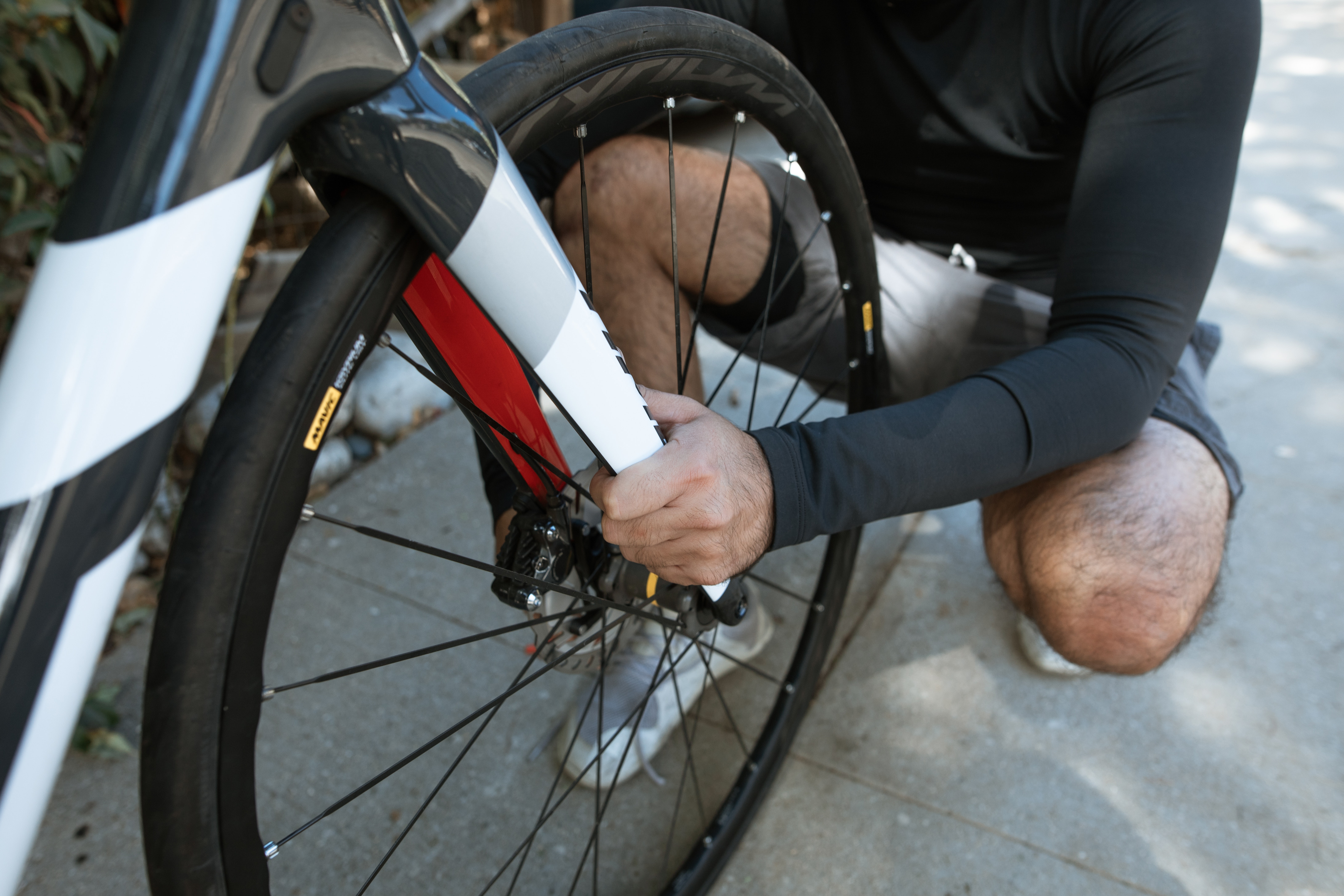Cycling should always be an inclusive community. As designers and manufacturers we should always make sure this is true of our bikes too. There are many people out there who find it difficult or even impossible to ride a standard bike though. Whether it’s because of balance problems, arthritis or any number of other problems, some people need more than just a traditional bike.
E-bikes in particular are great for many people with disabilities as they augment a user’s ability to cycle. Now obviously fixing a motor to a bike isn’t going to solve every problem, and not all disabilities require a motor to help. But electric bikes do provide an avenue for many people to begin cycling that previously couldn’t. Make it easier on people who find themselves in pain or out of breath when they usually cycle.
Augmentation
Because pedalling is motor assisted it allows people to cycle while using much less energy. You don’t need to do anywhere near as much work to get going. Anyone who’s ever been on an E-bike knows this, but for most of us it’s just less tiring. For someone who suffers from something like arthritis this could be the difference between being able to cycle or not.
Personally I suffer from asthma. It’s not too bad most of the time, but it can stop me from particularly strenuous cycles. On a particularly bad day it might even stop me cycling at all. I’m certainly always a little less confident about hills on long distances. Electric bikes have helped me a lot though. Not only is it easier to cycle up hill or long distances, it’s helped my symptoms. Exercise helps to alleviate asthma, you just need to moderate yourself correctly.
E-bikes helped me to moderate because I didn’t need to breathe as hard to get the same results. More importantly when I needed to rest a bit I could rely on the bike a lot. By being able to pull back when I cycled ,without needing to stop and rest I kept the motivation to keep going. And that’s what I want to talk about next.
Confidence
I’m going to be really honest here. I didn’t like cycling, I’d do it to get around and to exercise. I didn’t like it though. To me cycling meant heavy breathing, a tight chest, worrying if I forgot my inhaler when I had to stop. My experience of cycling was purely utilitarian mixed in with a bit of nervousness. Worry that I’d need to climb a hill. It just wasn’t a pleasant experience. So I wasn’t motivated to keep doing it.
Swapping to an electric bike meant I didn’t have to deal with any of that as much though. If I felt my chest start to get tight I could rely on the bike. I didn’t need to stop and wait, I didn’t need to just push through. I could keep going while I regained my breath.
Suddenly I could cycle anywhere. I could go out on country rides with friends, cycle to the cafe, even do a day’s errands on my bike. Honestly before I’d use my bike for quick trips and commutes. I was a little afraid to do much more than that. I’d tell myself that I couldn’t do that trip with asthma. I love cycling now, it’s my preferred way of getting around, and I leisure cycle.
It’s very easy to feel like you can’t cycle when you have health problems or a disability. It can take away all of your confidence. For me E-bikes let me get that confidence in myself, to be able to cycle instead of drive. Some disabilities are a little harder to overcome though. And not everyone with asthma needs an e-bike to build their confidence or to enjoy cycling. But it sure helped me.
Independence
E-bikes can also provide a degree of independence to people with mobility issues. Someone with severe arthritis can find it difficult to cycle or walk long distances. They may not drive either, if they can they might not feel safe doing so. If they’re still able to use an E-bike to get around though it gives them a larger degree of independence.
Being able to go to the shop or for a leisure cycle by yourself can be a wonderful thing. Something that it’s very easy to take for granted. Some people don’t have those options without assistance, and if E-bikes can offer it they’ll improve someone’s life.
Cycling Should Be For Everyone
E-bikes helped me overcome my reservations and get to cycling, but do they really help on a wider scale? Well, yes is the simple answer. At least for people with asthma. The Arthritis Foundation also lists E-bikes among those with “body-friendly” designs citing decreased effort and easier resting.
Cycling forums are full of people with health problems and disabilities helped by E-bikes. Whether they benefited more from overcoming a physical obstacle or just the extra confidence their stories are there for anyone to read.
I’ve mentioned already that it can’t fix every problem though. And it’s important to acknowledge this. E-bikes aren’t some magic technology that lets everyone ride a bike no matter what. Some disabilities need much more specialised designs. Things like hand bikes for people without the use of their legs for example.
What E-bikes are is a stepping stone towards enhanced mobility. Allowing people to go farther than they could with traditional cycles. The benefits that E-bikes give to everyone are multiplied when it’s applied to disabilities. For some it can be a return to something they used to love but had to stop. For others it’s a chance to do something they never felt they could.
E-bikes Help
This doesn’t apply to everything, but some problems improve with exercise. My asthma for example. It’s less of a burden than it’s ever been because I’m able to exercise more regularly. The problem was I found that difficult to do. It can be a vicious cycle honestly. For me that was broken when I had the extra confidence and help.
In a very real way E-bikes improved my health. And sure this is true for people with no health problems too. For me, and I’m sure for many others it’s a lot more than that. We didn’t just get fitter, we got a higher quality of life.
All of this is to say it’s important for E-bikes to be talked about and inclusive. I was lucky, I didn’t need a specialised bike, a motor was enough for me. Other people need a lot more. So I encourage all manufacturers out there to look at your range. Do you have bikes that could help people less able bodied than your target market? Wherever it’s possible I encourage you to adopt body-friendly designs. The easier it is for people to access helpful technology the better.
I know it can be a challenge to incorporate disabilities into your designs. I know not every company can do it. It’s a tight industry with some pretty tough margins. But if we want to build a community in this industry it means being as inclusive as possible. I also know e-bikes aren’t the solution for everyone, but they help. A lot. So let’s try make them help more.



